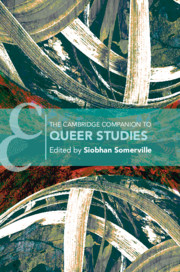Book contents
Part IV - Key Words
Published online by Cambridge University Press: 02 June 2020
Summary

- Type
- Chapter
- Information
- The Cambridge Companion to Queer Studies , pp. 199 - 240Publisher: Cambridge University PressPrint publication year: 2020



